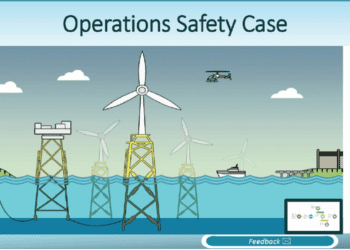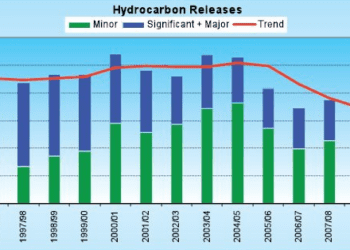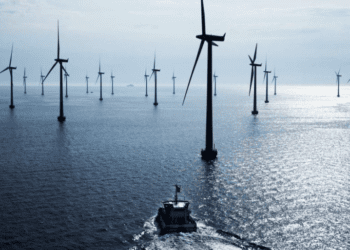The impact of the EC offshore directive on the UK offshore safety case regime

In June 2013, the European Commission (EC) published the Offshore Directive, which aims to reduce as far as practicable the occurrence of major accidents related to offshore oil and gas operations and limit their consequences. In response to the directive, a draft consultative document was launched in July 2014 by the UK Health and Safety Executive (HSE) and Department of Energy and Climate Change (DECC) setting out the ways that the EC requirements will be incorporated into the existing UK Offshore Safety Case regime (Ref 1).
Although still in the consultation phase, this gives a view of what the future of safety cases may look like, including the new Offshore Safety Case Regulations (OSCR 2015). Some of the key additions and their implications are considered below.
CORPORATE MAJOR ACCIDENT PREVENTION POLICY (CMAPP)
To ensure that major hazards are fully managed by the controlling organisation there is a new requirement for all operators to have a corporate policy on how major accidents are managed by producing a CMAPP. Although there have been varying views on which part of the business should produce such a policy and whether it only applies to companies registered as corporations, the guidance concludes that all operators in the North Sea should produce a CMAPP.
For many operators the policy should be an extension of existing major hazard management practices at a high level and indeed help reinforce safety leadership from the controlling entity in charge of the operator’s UK activities. The HSE consultation suggests additional capital expenditure may be needed, but this could be reduced or absorbed by the current industry drive to develop encompassing Process Safety Management Systems and the increased desire for more visible safety leadership.
INTEGRATION OF ENVIRONMENTAL CONTENT IN SAFETY CASES
The new OSCR 2015 will require the inclusion of environmental assessment, management and emergency response arrangements within safety cases. The manner of integration with existing safety arrangements is still subject to the consultation process, but the use of combined safety and environmental management systems and the adoption of a similar approach for Environmental Critical Element (ECEs) as is currently used for Safety Critical Elements (SCEs) would seem a sensible approach.
The benefits of combining or separating the safety and environmental requirements will depend on the assessment preferences of the Competent Authority (more on that later), as well as operator maturity and desire for a common approach. Whilst the HSE guidance discusses keeping oil spill plans separate and tailoring management systems to operator preferences, there seems to be most synergy in applying a common approach for critical element identification and management.
Certainly, achieving ECE identification and management through a major accident hazard analysis method, such as the preparation of bowtie diagrams, followed by the development of performance standards for the ECEs would provide consistency with the current SCE approach.
COMMUNICATING CHANGES TO STAFF
The HSE consultation states that the changes will have to be communicated to the workforce. This provides an ideal opportunity to increase workforce involvement in developing the safety case and thus help improve ‘buy-in’.
Furthermore, bespoke safety training focusing on the operator’s safety case approach provide an opportunity to engage and promote the new updates to staff.
APPLICATION OF THE SAFETY CASE REGIME TO EMERGING ENERGY TECHNOLOGIES
The consultation on OSCR 2015 includes consideration of areas where emerging energy technologies, such as coal gasification or operations such as shale gas exploitation in internal waters (lakes, rivers, estuaries, etc.), may need to be included within the safety case regime.
A NEW COMPETENT AUTHORITY
Enforcement of the combined environmental and safety requirements of OSCR 2015 will be carried out by a new Competent Authority, formed by the HSE and DECC working together in a similar way to that currently in force for onshore major hazard sites.
CONCLUSION
Whilst implementing the EC Offshore Directive in the UK will necessitate additional effort, its impact is evolutionary rather than revolutionary and complements the existing safety case regime.
Reference
1. Consultation on the implementation of Directive 2013/30/EU on the safety of offshore oil and gas operations…, DECC and HSE, CD272, July 2014
This article first appeared in RISKworld issue 26








